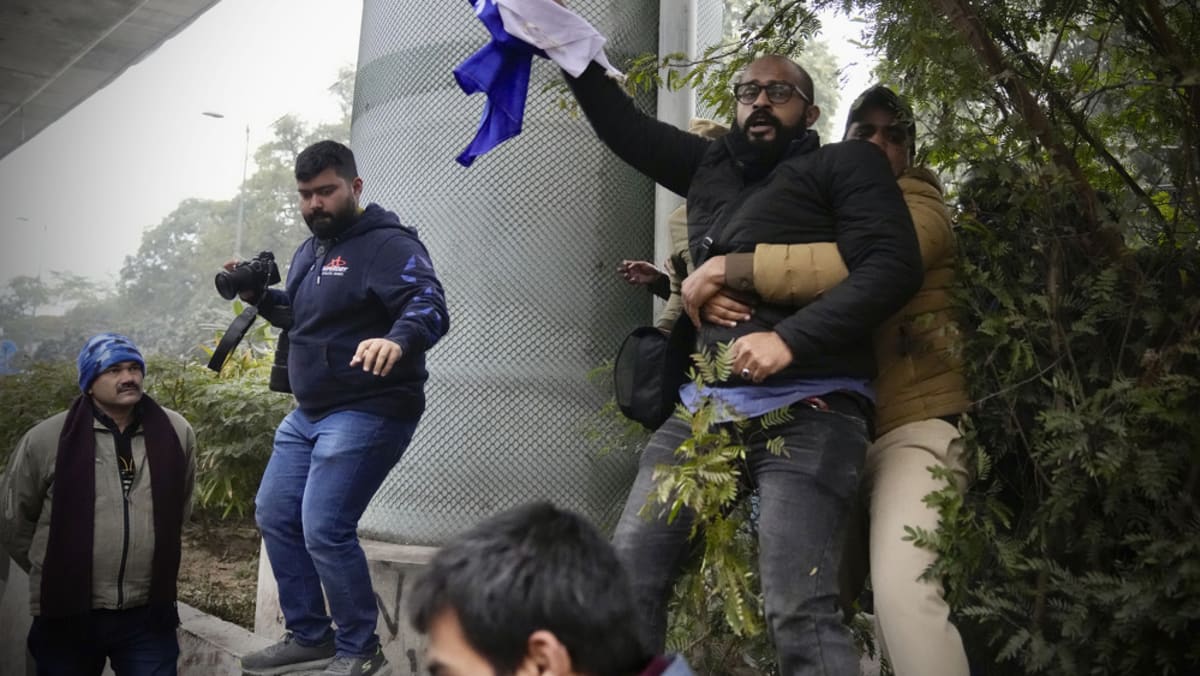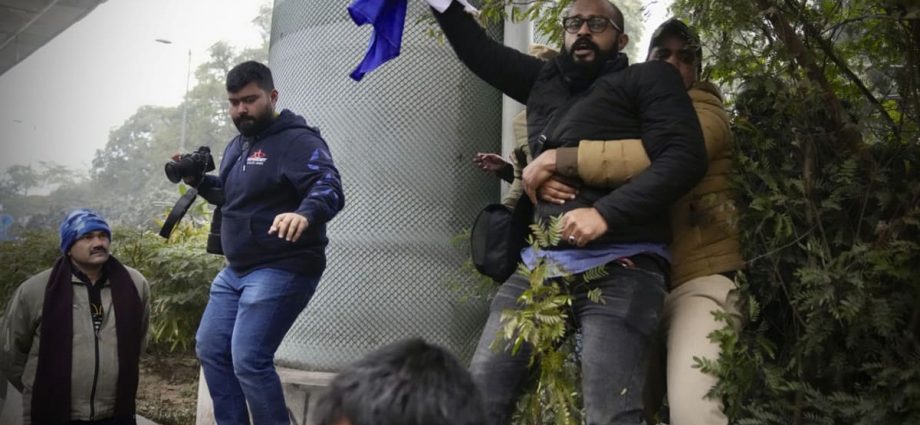
The ban on the BBC documentary comes after a proposal from the government to give its Press Information Bureau and other fact-checking agencies powers to take down news deemed “fake or false” from digital platforms.
The Editors Guild of India has urged the government to withdraw the proposal, saying such a change would be akin to censorship.
On Wednesday (Jan 25), tensions over the issue flared in the Indian capital of New Delhi where a student group at Jamia Millia University said it planned to screen the banned documentary.
That prompted dozens of police equipped with tear gas and riot gear to gather outside campus gates.
Police, some in plain clothes, scuffled with protesting students and detained at least half a dozen people, who were later taken away in a van.
“This is the time for Indian youth to put up the truth which everybody knows. We know what the prime minister is doing to the society,” said Liya Shareef, 20, a geography student and member of the student group Fraternity Movement.
New Delhi’s Jawaharlal Nehru University cut off power and the internet on its campus on Tuesday before the documentary was scheduled to be screened by a students union.
Authorities said the screening would disturb the peace on campus, but students nonetheless watched the documentary on their laptops and mobile phones after sharing it on messaging services such as Telegram and WhatsApp.
The documentary has caused a storm at other Indian universities too.
Authorities at the University of Hyderabad began a probe after a student group showed the banned documentary earlier this week.
In the southern state of Kerala, workers from the Bharatiya Janata Party held demonstrations on Tuesday after some student groups affiliated with rival political parties defied the ban and screened the programme.
The first part of the documentary, released last week by the BBC for its British audience, revives the most controversial episode of Modi’s political career when he was the chief minister of Gujarat state in 2002, when more than 1,000 people were killed in anti-Muslim riots.
Modi has denied allegations that authorities under his watch allowed and even encouraged the bloodshed, and the Supreme Court said it found no evidence to prosecute him.
Last year, it dismissed a petition filed by a Muslim victim questioning Modi’s exoneration.
The first part of the BBC documentary relies on interviews with victims of the riots, journalists and human rights activists, who say Modi looked the other way during the riots.
It cites, for the first time, a secret British diplomatic investigation that concluded Modi was “directly responsible” for the “climate of impunity”.
The movie includes testimony from then-British Foreign Secretary Jack Straw that the British investigation found the violence by Hindu nationalists aimed to “purge Muslims from Hindu areas” and had all the “hallmarks of an ethnic cleansing”.
Suspicions that Modi quietly supported the riots led the United States, United Kingdom and the European Union to deny him a visa, a move that has since been reversed.

